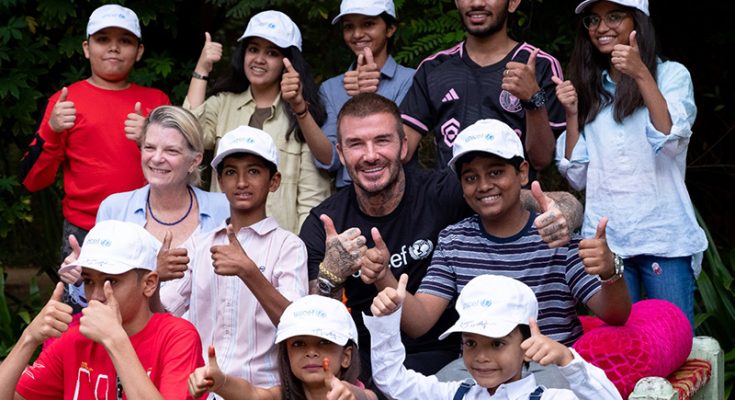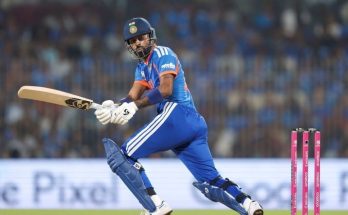#DavidBeckham, # India, #NewZealand , #UNICEF
UNICEF Goodwill Ambassador David Beckham travelled to India this week to meet children and adolescents, including girls who are bringing about change and innovation in their communities, and young women who have overcome barriers to help close gender gaps.
During his four-day visit, including to the western Indian state of Gujarat, Beckham saw first-hand how UNICEF-supported programmes are making a difference for girls and women, in partnership with the Government of India.
In Banaskantha district in Gujarat, Beckham met 21-year-old Rinku Pravibhai who was engaged to be married at age 15. She was pressured to drop out of school but learned about the harmful consequences of child marriage at a UNICEF-supported ‘young girls’ group. Her marriage was called off after confiding in a social worker and, today, Rinku is studying to be a nurse at a local college.
Beckham met with community workers, government officials and activists who help children continue their schooling and empower them to say no to child marriage and child labour.

“As a father of a young daughter, I was deeply moved to meet Rinku and other young girls who are fighting for change at an early age and having a say in their futures,” said UNICEF Goodwill Ambassador David Beckham. “Rinku is a role model for other girls who want to complete their education and fulfil their potential. All these girls have benefited from mentors supported by UNICEF, in partnership with the Government of India.”
Beckham met young innovators and entrepreneurs at the Vikram Sarabhai Children Innovation Centre in Gujarat University. A first of its kind for children in India, the Centre was set up to promote innovations by children, especially girls. Twenty-seven-year-old Shikha Shah has set up AltMat, a material science company upcycling agricultural residue to create environment friendly natural fibers for textile and fashion. The company has scaled up its patented technology to one of the highest production capacities solving the dual problem of agri-waste and fashion pollution.
UNICEF works with the Government of India to invest in girls’ education and opportunities that boost their confidence and skills and help them become the next generation of entrepreneurs and leaders.
In Ahmedabad, Beckham met with children from the Gujarat Youth Forum – set up two years ago by a local partner, Elixir, and UNICEF, to inspire young people to become change-makers.
He spoke to 12-year-old Pratha Vanar, a young cricketer, who started playing cricket when she was six and is now the sole girl among boys in the team.
He also met 14-year-old author Aarya Chavda who donates her book and art proceeds to underprivileged cancer patients.
“UNICEF Goodwill Ambassador David Beckham’s visit to India spotlights the message on the importance of equal opportunities and rights for every child. His visit reinforces UNICEF’s mission to support equal opportunities to empower all, especially girls,” said UNICEF India Representative Cynthia McCaffrey. “UNICEF is deeply committed to supporting the Government of India so every child can survive, thrive and pursue their dreams. The quest for gender equality runs at the core of all of UNICEF’s work in India.”

The COVID-19 pandemic exacerbated gender inequalities in South Asia. An increase in domestic violence, child marriage and loss of paid work and employment impacted girls and women who continue to bear the brunt of longer-term socio-economic shocks experienced in the region.
As part of the visit, David Beckham joined legendary cricketer and UNICEF Regional Ambassador for South Asia, Sachin Tendulkar, and children at the ICC Cricket Word Cup semifinal in Mumbai.
The sports stars united to celebrate UNICEF’s partnership with the International Cricket Council (ICC) that aims to empower girls and women through cricket. They called on spectators to #BeAChampion for girls and boys – no matter where they live – so they can equally participate in sport and life’s opportunities.
“I have always been a strong believer in the power of sport in levelling the playing field for children. Sports promotes participation, breaks down gender stereotypes and is a powerful way to help girls to realise their dreams,’’ added Beckham.





